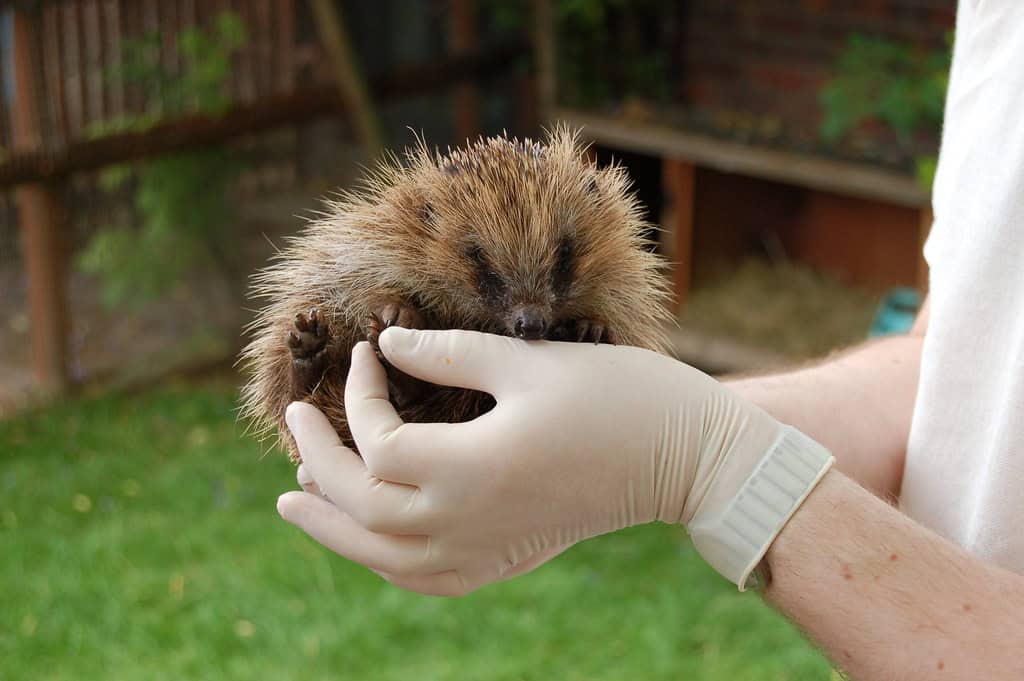Picture this: you’re scrolling through social media when a video of an adorable hedgehog curled up in a tiny ball pops up on your feed. Those little quills, that precious snout, and those beady eyes instantly melt your heart. You start daydreaming about having your own spiky companion, imagining cozy evenings with your new pet. But hold on just a minute – before you rush out to find your perfect hedgehog, there’s a whole world of important information you absolutely need to understand first.
Hedgehogs might look like the perfect exotic pet, but they’re far more complex than most people realize. These fascinating creatures have very specific needs, quirky behaviors, and unique care requirements that can catch new owners completely off guard. What seems like a simple decision to bring home a cute, small animal can quickly turn into an overwhelming experience if you’re not properly prepared.
12. Hedgehogs Are Not Legal Everywhere

Before you even start shopping for hedgehog supplies, you need to check if owning one is actually legal where you live. Many cities, states, and countries have strict regulations or complete bans on keeping hedgehogs as pets. Some places require special permits, while others classify them as exotic animals that are entirely prohibited for private ownership. California, Hawaii, Pennsylvania, and Georgia are just a few states where hedgehog ownership faces restrictions. Even if your state allows hedgehogs, your local city or county might have different rules that could land you in legal trouble.
11. They Require Specialized Veterinary Care

Finding a veterinarian who knows how to properly treat hedgehogs can be surprisingly challenging and expensive. Most regular pet vets don’t have extensive experience with hedgehogs, so you’ll likely need to seek out an exotic animal specialist. These specialized vets often charge significantly more than standard pet care, and emergency visits can cost hundreds of dollars. Hedgehogs are also masters at hiding illness, which means by the time you notice something’s wrong, the problem might already be serious. You should research and establish a relationship with a qualified exotic vet before bringing your hedgehog home, not after an emergency strikes.
10. Their Lifespan Might Surprise You

Many people assume hedgehogs are short-term pets, but they actually live between 4 to 8 years on average, with some reaching up to 10 years with excellent care. This means you’re making a significant long-term commitment that will span through major life changes like moving, starting college, getting married, or having children. Unlike hamsters or gerbils that live only 2-3 years, hedgehogs require nearly a decade of consistent care, attention, and financial investment. Before getting a hedgehog, honestly ask yourself if you can commit to daily care, regular vet visits, and proper housing for potentially the next eight years. Many hedgehogs end up in rescues because owners didn’t realize the length of commitment involved.
9. Temperature Control Is Critical for Their Health

Hedgehogs are incredibly sensitive to temperature changes and require a consistently warm environment between 72-80°F to stay healthy and active. If the temperature drops below 70°F, they can go into a state called torpor, which is similar to hibernation and can actually be life-threatening for domestic hedgehogs. On the flip side, temperatures above 85°F can cause dangerous overheating and heat stroke. This means you’ll need to carefully monitor your home’s temperature year-round, possibly investing in additional heating equipment during winter and cooling solutions during summer. Power outages, broken air conditioning, or even drafty rooms can create serious health risks for your spiky friend.
8. They’re Nocturnal and Can Be Quite Noisy

If you’re hoping for a quiet, daytime companion, a hedgehog definitely isn’t the right choice for you. These little creatures are most active during nighttime hours, which means they’ll be running on their wheel, rustling through bedding, and exploring their cage while you’re trying to sleep. Hedgehog wheels can be surprisingly loud, and some hedgehogs are particularly enthusiastic runners who might keep you awake for hours. They also make various sounds including huffing, clicking, and even some surprisingly loud vocalizations when they’re upset or excited. Many new hedgehog owners are shocked by just how much noise such a small animal can make during the night.
7. Their Diet Is More Complex Than You’d Expect

Feeding a hedgehog properly requires much more thought and planning than simply buying a bag of “hedgehog food” from the pet store. These insectivores need a high-protein, low-fat diet that closely mimics what they’d eat in the wild, including insects like mealworms, crickets, and waxworms. Many commercial hedgehog foods are actually nutritionally inadequate, so experienced owners often feed high-quality cat food supplemented with insects and occasional fruits or vegetables. The wrong diet can quickly lead to obesity, dental problems, or serious digestive issues. You’ll also need to research which foods are toxic to hedgehogs, as many common human foods and even some pet treats can be dangerous for them.
6. Handling Requires Patience and Proper Technique

Unlike dogs or cats that might naturally enjoy human interaction, hedgehogs require significant time and patience to become comfortable with handling. When scared or stressed, they’ll curl into a tight, spiky ball that can be painful to touch and nearly impossible to uncurl by force. Building trust with a hedgehog can take weeks or even months of consistent, gentle interaction, and some hedgehogs never become truly cuddly pets. You’ll need to learn proper handling techniques to avoid getting pricked by their quills, and you must be prepared for the possibility that your hedgehog might always be somewhat defensive around humans. This isn’t a pet you can expect to immediately bond with like a puppy or kitten.
5. They Need Plenty of Space and Enrichment

Despite their small size, hedgehogs need surprisingly large living spaces to stay healthy and mentally stimulated. A proper hedgehog enclosure should be at least 2 feet by 3 feet, but bigger is always better since these animals can run several miles on their wheel each night. They also require various enrichment items like hiding spots, tunnels, toys, and different textures to explore and investigate. Without adequate space and mental stimulation, hedgehogs can develop behavioral problems, become depressed, or even start self-harming behaviors like excessive quill pulling. Setting up a proper hedgehog habitat often costs several hundred dollars and requires ongoing maintenance and updates to keep your pet engaged.
4. They’re Prone to Several Serious Health Issues

Hedgehogs are unfortunately susceptible to various health problems that can be both expensive to treat and emotionally difficult to manage. Wobble Hedgehog Syndrome is a progressive neurological condition that affects many hedgehogs and has no cure, causing gradual paralysis and eventual death. They’re also prone to cancer, dental problems, obesity, and various skin conditions that require ongoing veterinary care. Respiratory infections are common, especially if their environment isn’t kept at proper temperature and humidity levels. Many hedgehog owners are unprepared for the emotional and financial toll of managing chronic health conditions in their pets, leading to difficult decisions about treatment options and quality of life.
3. They Don’t Do Well with Other Pets or Children

If you have other pets like cats, dogs, or ferrets, introducing a hedgehog to your household can be extremely stressful and potentially dangerous for everyone involved. Hedgehogs are naturally prey animals and will be constantly stressed by the presence of larger predators, even if those predators are well-behaved family pets. Young children often lack the patience and gentle touch required for hedgehog interaction, and the combination of quills and sudden movements can result in scared children and stressed hedgehogs. Even well-meaning children might inadvertently harm a hedgehog by handling them incorrectly or making loud noises that cause stress. Hedgehogs generally do best in quiet, calm households with minimal disruption.
2. The Initial Setup Costs Are Substantial

Getting started with hedgehog ownership involves significant upfront expenses that many people don’t anticipate. A proper enclosure, heating equipment, quality wheel, food and water dishes, hiding spots, bedding, and initial veterinary care can easily cost $300-500 before you even purchase the hedgehog itself. Quality hedgehogs from reputable breeders typically cost $100-300, and that’s just the beginning of your financial commitment. You’ll also need ongoing expenses for food, bedding, occasional toy replacements, and regular veterinary check-ups. Many new owners are shocked when they add up all the necessary supplies and realize they’ve spent more on equipment than they expected to spend on the pet itself.
1. They’re Not the Cuddly Companion You Might Expect

Perhaps the most important thing to understand about hedgehogs is that they’re not naturally affectionate pets like dogs, cats, or even rabbits. While some hedgehogs do bond with their owners and enjoy gentle interaction, many remain somewhat aloof and independent throughout their lives. They don’t typically seek out human attention, won’t come when called, and may never enjoy being petted or held for extended periods. If you’re looking for a pet that will enthusiastically greet you at the door, cuddle with you on the couch, or provide emotional comfort during difficult times, a hedgehog probably isn’t the right choice. These are fascinating animals to observe and care for, but they’re much more like having a very small, spiky roommate than a traditional companion animal.
Conclusion

Owning a hedgehog can be an incredibly rewarding experience for the right person, but it’s definitely not a decision to make lightly. These unique creatures require specialized care, significant financial investment, and a deep understanding of their complex needs and behaviors. Take time to honestly evaluate whether you can provide the proper environment, veterinary care, and long-term commitment that a hedgehog deserves. Consider visiting local hedgehog rescues or connecting with experienced owners to get a realistic picture of daily hedgehog care before making your final decision. Are you truly prepared for a decade-long journey with a nocturnal, spiky companion who might never want to snuggle?
- The Most Beautiful Bird Migration Routes Across the US - August 9, 2025
- 14 Dog Breeds That Love to Cuddle - August 9, 2025
- 11 Signs Your Horse Might Be Bored - August 9, 2025

